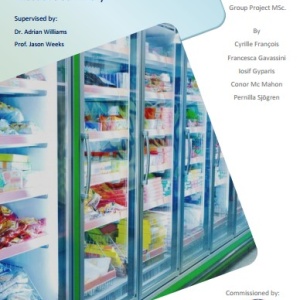
A new report from at Cranfield University suggests that increasing the production and consumption of frozen food in the UK can play a significant role in delivering the government’s 2020 and 2050 food security targets. The report, Frozen Food and Food Security in the UK, was produced by sustainability experts at Cranfield University on behalf of the British Frozen Food Federation (BFFF).
The researchers assessed a range of factors, such as waste reduction, increasing production, providing affordable nutrition and reducing the environmental impact of food production. They concluded that frozen food already contributes to food security in the UK and expanding its use could contribute significantly more.
Greenhouse gas emissions (GHGE), consumer cost and waste production for four of the most common shopping list items – cod, carrots, broccoli and potatoes – were calculated and compared with typical fresh and frozen supply chains throughout the year.
Key findings included:
- Increasing frozen food can significantly reduce edible food waste in the supply chain and lessen the impact of that food waste
- Waste produced in frozen production occurred higher in the supply chain where it has less impact due to reuse and recycling options compared to fresh products wasted in the home, which often ends up in landfill
- There is a potential waste saving of between 25% and 79% if the entire supply chain for these four products was shifted to frozen
- Frozen products are typically less expensive than their fresh equivalents making fish and vegetable products, which can enhance dietary health, more accessible to low budget households
- Frozen food can significantly reduce GHGE production for foodstuffs not produced in the UK year round
- By increasing the use of frozen broccoli, the UK could be 100% self-sufficient in production reducing GHGE production by 15%
- Fresh Atlantic cod produces at least 50% more CO2e than frozen because the extended shelf life offered by frozen food enables more efficient transportation methods.
Read the executive summary of the report here.
The FCRN’s own report on food refrigeration, greenhouse gas emissions and the evolution of refrigeration dependence can be found here.







Post a new comment »